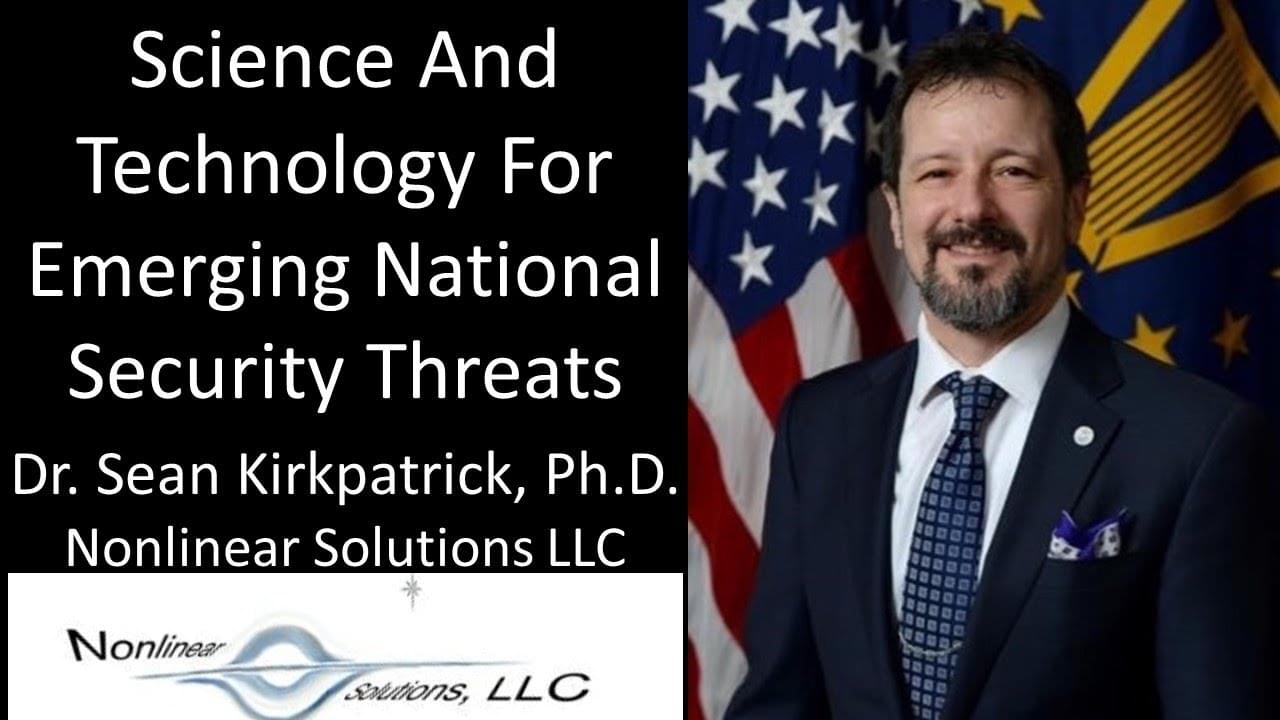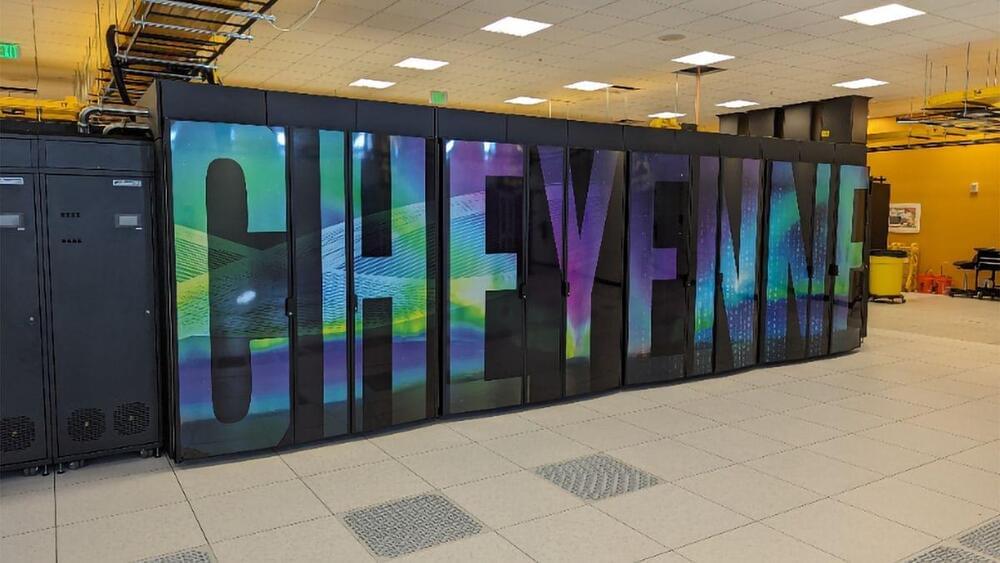Archive for the ‘government’ category: Page 11
Apr 29, 2024
China Shows Off Monkey With Brain Chip Allowing It to Control Robotic Arm
Posted by Shailesh Prasad in categories: Elon Musk, government, neuroscience, robotics/AI
A Chinese company says it’s successfully developed a brain chip and implanted it into a monkey — who can now remotely control a robot arm with the device.
That’s according to state-run news media outfit Xinhua, putting Elon Musk’s startup Neuralink on notice that there will be international as well as domestic competition for his brain-computer interface venture.
The company, Beijing Xinzhida Neurotechnology, which is backed by the Chinese government, unveiled its device, the NeuCyber Array BMI (brain-machine interface) System at a technology convention in Beijing on Thursday, according to Reuters.
Apr 25, 2024
Bipartisan Effort Demands DEA Action on Marijuana Scheduling
Posted by Laurence Tognetti, Labroots Inc. in categories: biotech/medical, government, neuroscience
Read how Congress is pressing the DEA to reclassify marijuana from a Schedule I drug to Schedule III.
Marijuana is currently classified as a Schedule I drug, meaning these are “drugs with no currently accepted medical use and a high potential for abuse.” However, a team of 21 bipartisan congressional leaders from both the Senate and House of Representatives hopes to change that as they recently sent a letter to the United States Drug Enforcement Administration (DEA) pushing them to “promptly remove marijuana from Schedule I of the Controlled Substances Act (CSA)”, noting that almost eight months had passed “since the Department of Health and Human Services (HHS) recommended rescheduling marijuana to Schedule III — and 18 months since President Biden directed HHS and the Department of Justice (DOJ) to begin the process of reviewing marijuana’s scheduling.”
Examples of other Schedule I drugs include heroin, lysergic acid diethylamide (LSD), marijuana (cannabis), 3,4-methylenedioxymethamphetamine (ecstasy), methaqualone, and peyote, while Schedule III drugs include Tylenol, ketamine, anabolic steroids, and testosterone. Additionally, the penalties between Schedule I and Schedule III drugs also demonstrate stark contrasts, as well.
Continue reading “Bipartisan Effort Demands DEA Action on Marijuana Scheduling” »
Apr 24, 2024
Dr. Sean Kirkpatrick, Ph.D. — Science And Technology For Emerging National Security Threats
Posted by Ira S. Pastor in categories: government, military, nanotechnology, physics, science, space

Science And Technology For Emerging National Security Threats — Dr. Sean Kirkpatrick, Ph.D. — Nonlinear Solutions LLC — Fmr. Director, All-domain Anomaly Resolution Office (AARO), United States Department of Defense.
Dr. Sean Kirkpatrick, Ph.D. is Owner of Nonlinear Solutions LLC., an advisory group that provides strategic scientific and intelligence consulting services, with a focus on emerging science and technology trends, to clients in both the defense and intelligence communities.
Apr 23, 2024
A National Security Insider Does the Math on the Dangers of AI
Posted by Jose Ruben Rodriguez Fuentes in categories: biotech/medical, government, health, internet, policy, robotics/AI, security
Jason Matheny is a delight to speak with, provided you’re up for a lengthy conversation about potential technological and biomedical catastrophe.
Now CEO and president of Rand Corporation, Matheny has built a career out of thinking about such gloomy scenarios. An economist by training with a focus on public health, he dived into the worlds of pharmaceutical development and cultivated meat before turning his attention to national security.
As director of Intelligence Advanced Research Projects Activity, the US intelligence community’s research agency, he pushed for more attention to the dangers of biological weapons and badly designed artificial intelligence. In 2021, Matheny was tapped to be President Biden’s senior adviser on technology and national security issues. And then, in July of last year, he became CEO and president of Rand, the oldest nonprofit think tank in the US, which has shaped government policy on nuclear strategy, the Vietnam War, and the development of the internet.
Apr 19, 2024
TSMC to charge premium for making chips outside of Taiwan, including its new US fabs, CEO says
Posted by Genevieve Klien in categories: computing, government
Indeed, the costs of building fabs in Germany, Japan, and the U.S. are higher than the costs of building fabs in Taiwan and TSMC has complained about it a number of times in the past. The company even had to delay production start at its Fab 21 near Phoenix, Arizona, due to problems with tools installation and negotiations with trade unions.
Therefore, if a TSMC customer wants to produce its chips at a specific location, then the foundry will charge a premium. How high is that premium will be remains to be seen, but last year a media report indicated that chips made in Arizona on TSMC’s N5 and N4 production nodes could be from 20% to 30% more expensive than the same chips produced in Taiwan.
Due to higher construction and operational expenses of fabs in Japan, Germany, and the U.S., TSMC plans to transfer these additional costs to its customers to sustain its target gross margin of 53%. Although American chip designers may not welcome the increased production costs in the U.S., they will probably manufacture chips intended for government and other markets less sensitive to price increases at the Arizona facility. Consequently, they should manage to pass on these higher costs to at least some of their end customers without jeopardizing their market competitiveness.
Apr 19, 2024
Neom — The Line — The Rise and Fall of Saudi Arabia’s Linear City
Posted by Dan Breeden in category: government

Get 20% off DeleteMe US consumer plans when you go to https://joindeleteme.com/BOYLE and use promo code BOYLE at checkout. For DeleteMe international Plans go to https://international.joindeleteme.com.
Saudi Arabia’s plan to build a 170km long, 500m tall, mirrored city in the desert, filled with 9 million people has been curtailed to 2.4km long.
Continue reading “Neom — The Line — The Rise and Fall of Saudi Arabia’s Linear City” »
Apr 9, 2024
Hackers stole 340,000 Social Security numbers from government consulting firm
Posted by Genevieve Klien in categories: cybercrime/malcode, economics, government
GMA provides economic and litigation support to companies and U.S. government agencies, including the U.S. Department of Justice, bringing civil litigation. According to its data breach notice, GMA told affected individuals that their personal information “was obtained by the U.S. Department of Justice (“DOJ”) as part of a civil litigation matter” supported by GMA.
The reasons and target of the DOJ’s civil litigation are not known. A spokesperson for the Justice Department did not respond to a request for comment.
GMA said that individuals notified of the data breach are “not the subject of this investigation or the associated litigation matters,” and that the cyberattack “does not impact your current Medicare benefits or coverage.”
Apr 9, 2024
NSA Expert: Quantum Computing to Enter Workforce in 3 to 5 Years
Posted by Shubham Ghosh Roy in categories: cybercrime/malcode, government, quantum physics
A national security expert predicts practical quantum computing tools are just three to five years away from integration into the workforce, NextGov is reporting.
Neal Ziring, the Technical Director of the National Security Agency’s (NSA) Cybersecurity Directorate, made the forecast during a recent public sector cybersecurity event hosted by Palo Alto Networks in Palo Alto. As reported by NextGov, Ziring expects the devices to be accessible predominantly through cloud-based platforms.
Ziring added that the impracticality and cost-prohibitive nature of would put on-premise installations for quantum computing systems out of reach for most organizations, including government agencies.
Apr 7, 2024
It Is Time To Take Intel Seriously As A Chip Foundry
Posted by Gemechu Taye in categories: computing, economics, finance, government, security
The third proof point is both the increase in manufacturing capacity investment and the change in how that investment will be managed. With the interest in governments to secure future semiconductor manufacturing for both supply security and economic growth, Mr. Gelsinger went on a spending spree with investment in expanding capacity in Oregon, Ireland, and Israel, as well as six new fabs in Arizona, Ohio, and Germany. Most of the initial investment was made without the promise of government grants, such as the US Chips Act. However, Intel has now secured more than $50B from US and European government incentives, customer commitments starting with its first five customers on the 18A process node, and its financial partners. Intel has also secured an additional $11B loan from the US government and a 25% investment tax credit.
In addition to it’s own investment in fab capacity, Intel is partnering with Tower Semiconductor and UMC, two foundries with long and successful histories. Tower will be investing in new equipment to be installed in Intel’s New Mexico facility for analog products, and UMC will partner with Intel to leverage three of the older Arizona fabs and process nodes, starting with the 12nm, to support applications like industrial IoT, mobile, communications infrastructure, and networking.
The second side of this investment is how current and future capacity will be used. As strictly an IDM, Intel has historically capitalized on its investments in the physical fab structures by retrofitting the fabs after three process nodes, on average. While this allowed for the reuse of the structures and infrastructure, it eliminated support for older process nodes, which are important for many foundry customers. According to Omdia Research, less than 3% of all semiconductors are produced on the latest process nodes. As a result, Intel is shifting from retrofitting fabs for new process nodes to maintaining fabs to support extended life cycles of older process nodes, as shown in the chart below. This requires additional capacity for newer process nodes.
















